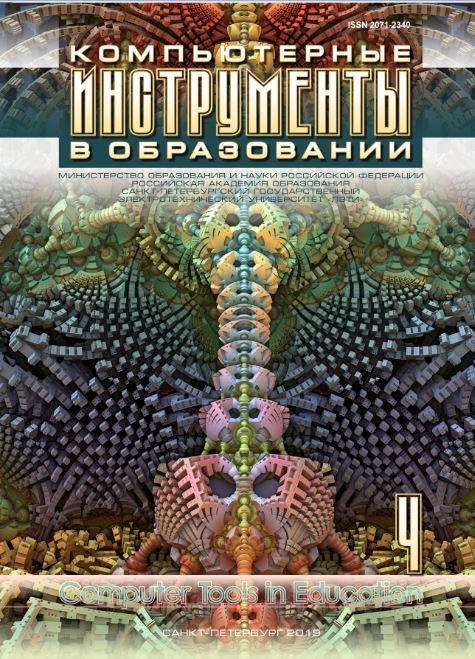About Symbolic Integration in the Course of Mathematical Analysi
Abstract
The work of transforming a database from one format periodically appears in different organizations for various reasons. Today, the mechanism for changing the format of relational databases is well developed. But with the advent of new types of database such as NoSQL, this problem was exacerbated due to the radical difference in the way data was organized. This article discusses a formalized method based on set theory, at the choice of the number and composition of collections for a key-value type database.
The initial data are the properties of the objects, information about which is stored in the database, and the set of queries that are most frequently executed or the speed of which should be maximized. The considered method can be applied not only when creating a new key-value database, but also when transforming an existing one, when moving from relational databases to NoSQL, when consolidating databases.
References
W. A. Stein et al., Sage Mathematics Software (Version 7.3), The Sage Development Team, 2016. [Online]. http://www.sagemath.org (дата обращения: 07.12.2019).
V. A. Ilyin and Je. G. Poznjak, Osnovy matematicheskogo analiza [Fundamentals of Mathematical Analysis], Ch. 1, 7th ed., Moscow: Fizmatlit, 2005 (in Russian).
V. F. Butuzov et al., Matematicheskij analiz v voprosah i zadachah [Mathematical analysis in questions and tasks], 4th ed., Mocscow: Fizmatlit, 2001 (in Russian).
M. Bronstein, Symbolic Integration I. Transcendental Functions, Springer, 2005.
D. A. Pavlov, “Simvol’noe integrirovanie” [Symbolic Integration], Computer tools in education, no. 2, pp. 38–43, 2010 (in Russian).
J. R. Slagle, A heuristic program that solves symbolic integration problems in freshman calculus, symbolic automatic integrator SAINT, Massachusetts Institute of Technology, 1961.
J. Moses, Symbolic integration, Massachusetts Institute of Technology, 1967.
J. Moses, “Symbolic Integration: The Stormy Decade,” in Proc. of the 2nd ACM symposium on Symbolic and algebraic manipulation, Los Angeles, CA, March 23–25 1971, pp. 427–440; doi: 10.1145/800204.806313
T. Tarnavskij, “Pishem svoj diff()” [Writing your diff()], Linux Format, vol. 86, no. 12, pp. 96–99, 2006.
G. A. Osborne, An elimentary treatise on the differential and integral calculus, with examples and applications D. C. Heath & co., 1903.
G. Strang, Calculus Online Textbook, MIT, 2005, [Online], Available: https://ocw.mit.edu/resources/res-18-001-calculus-online-textbook-spring-2005 (дата обращения: 07.12.2019).

This work is licensed under a Creative Commons Attribution 4.0 International License.







